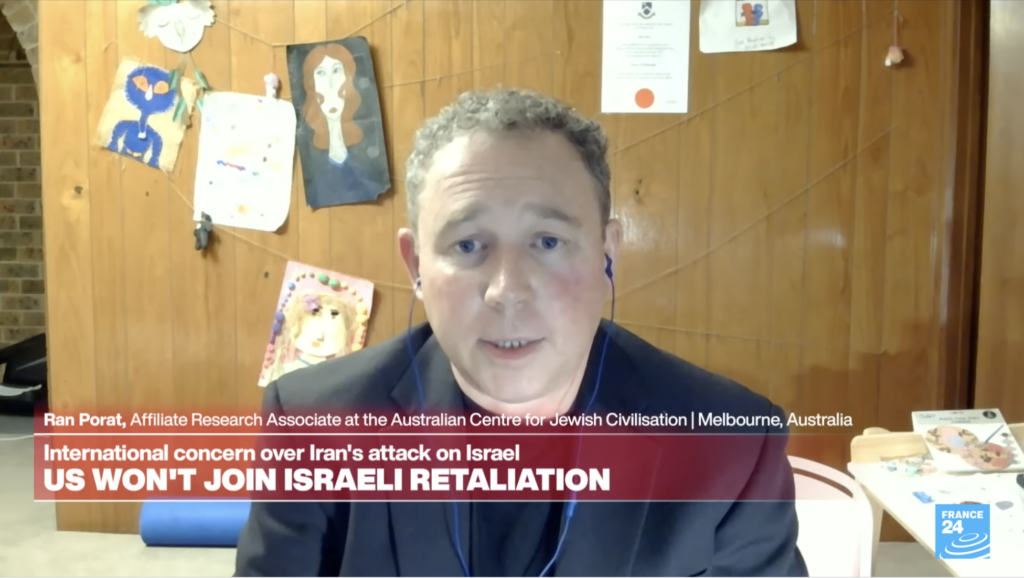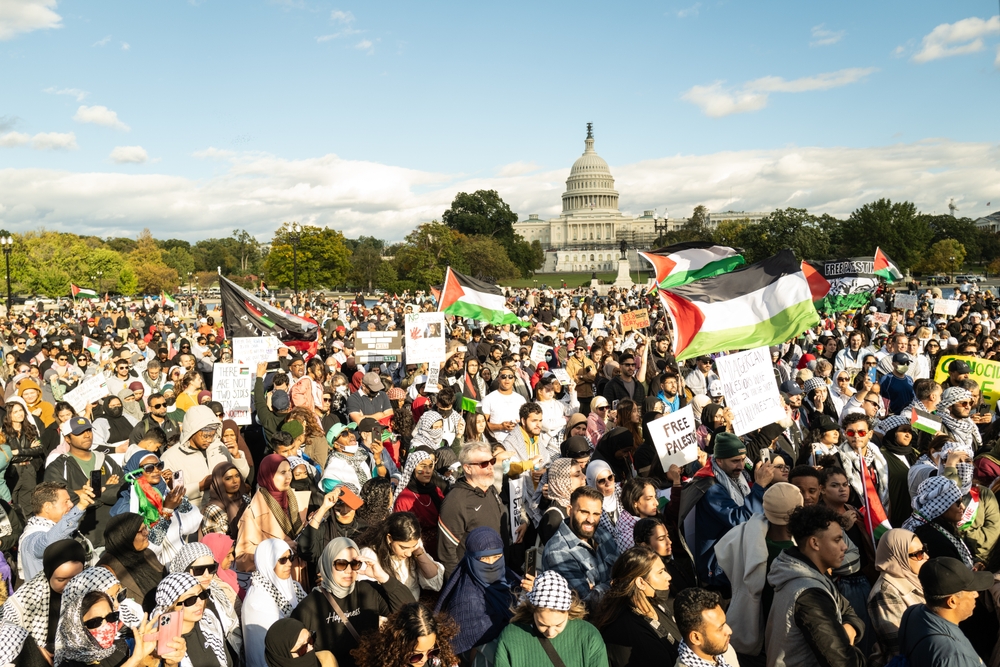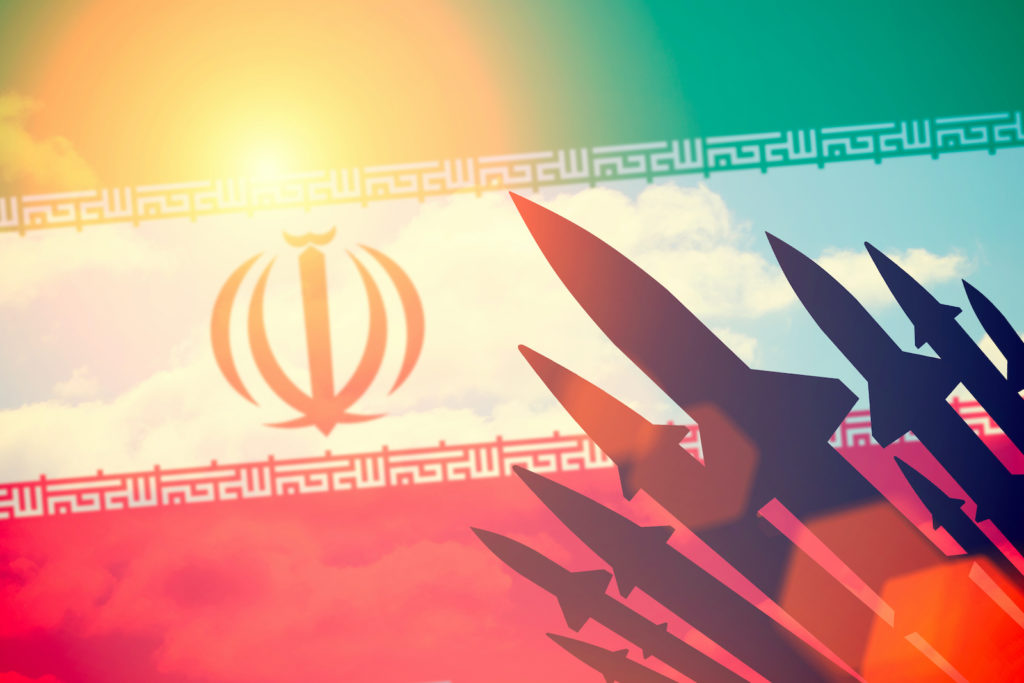IN THE MEDIA
Broken dreams in the promised land
Jul 24, 2010 | Bren Carlill
Bren Carlill
The Weekend Australian, July 24-25 2010
Yasser Arafat ignored an olive branch 10 years ago and nothing has changed
EHUD Barak and Yasser Arafat, smiling broadly, jostled before the world’s cameras to see who could enter the door last. It was Camp David, the US presidential retreat in Maryland, and the world waited as the Israeli and Palestinian leaders attempted to conclude a permanent peace agreement.
This weekend marks 10 years since those talks ended in failure, and when measured against the thousands of lives since needlessly lost, it’s hard to remember that people were actually hopeful about their success.
What happened at Camp David is well known. Israel offered the Palestinians a state in 92 per cent of the West Bank and all of the Gaza Strip. Yasser Arafat rejected the offer and refused to make any counter-offers, quickly dead-ending the talks. What remains unclear to many is why.
Arafat had fallen into a trap of his own making by creating expectations among Palestinians that Israel could not meet.
Throughout the peace process, Arafat promised Palestinians a full Israeli return to the “Green Line” (the West Bank and Gaza Strip borders) and a full “right of return” for Palestinian refugees and their descendants. Any Palestinian suggesting anything less was branded a traitor.
But Israel cannot fully withdraw to the 1949 borders. Most of the large settlement blocs straddle or lie just over the border and Judaism’s holiest site is in the Old City of Jerusalem, occupied by Jordan until 1967. Minor border adjustments and land swaps are the offered alternative.
The arguments against a full “right of return” are more black and white. Just as the Palestinian constitution describes Palestine as Arab, Israel describes itself as Jewish. Flooding Israel with more than five million Arabs (descendants of Palestinian refugees) would end its Jewish majority.
In other words, border adjustments (92 per cent? 98 per cent?) can be negotiated, but the right of return demand is a deal breaker, and indicates for Israel the seriousness or otherwise of Palestinian peace overtures.
At Camp David, Arafat faced a yes-no decision; to have a state (but one less than he’d promised his people), or not to have a state. He said no because he felt that agreeing to any Israeli offer would mean his political, and possibly physical, end.
After signing the 1993 Israeli-Palestinian peace agreement (“Oslo I”), and contrary to what was in it, Arafat established more than a dozen relatively autonomous, well-armed “security” services. Though these were loyal to Arafat, had he brought home an agreement failing to meet the expectations he’d created, it’s doubtful all would have remained so. A civil war was on offer.
Arafat was also worried about assassination. Consider Michael Collins. In 1922, he signed a peace treaty with Britain, securing Irish independence but at the cost of losing six counties to the newly created Northern Ireland. Collins famously declared, “I have signed my death warrant.” He was assassinated, giving his life to create his country. Egypt’s Anwar Sadat and Israel’s Yitzhak Rabin were likewise two leaders that put peace ahead of their own safety.
Events in the decade since Camp David have further complicated chances of peace.
On September 29, 2000, two months after Camp David, the second intifada began. Ostensibly sparked by then Israeli opposition leader Ariel Sharon’s visit to the Temple Mount, Palestinian leaders later made clear (in Arabic) that violence had been planned from the moment Arafat left Maryland.
Arafat instigated the violence for three reasons. First, Palestinians no longer liked the peace process. It hadn’t delivered a state, returned the refugees or ended Israeli occupation. Instead, from the day of its creation, as a direct consequence of the peace process, the Palestinian Authority became synonymous with financial and political corruption.
Rather than the “fruits of peace” Palestinians were expecting, the peace process brought misery. Additionally, constant anti-Israel incitement in Palestinian government media had created the ironic situation where Palestinians were questioning why their government was in a peace process with an Israel it vilified. Instigating and supporting violence, thereby rejecting the peace process, created the impression the government was on the people’s side. Second, Arafat was relying on Israeli military responses to Palestinian violence to generate international sympathy for Palestinians, thus alleviating criticism for walking away from Camp David. Third, in the past, violence against Israel had produced Israeli concessions. After all, the first intifada led to the Oslo agreements.
But in instigating the second intifada, Arafat didn’t realise Israeli perceptions had changed. The first intifada made Israelis realise they didn’t want to be occupiers, and that a political resolution to the conflict had to be found. But the second intifada saw Israel confronted with Palestinian violence after seven years of negotiations and offers of statehood.
Many Israelis came to the conclusion that Palestinian violence wasn’t about Israel’s occupation, but its existence.
Thus, rather than making Israelis more conciliatory, the second intifada drove Israel in the direction of unilateralism, and in 2005, Israel unilaterally withdrew from the Gaza Strip.
By disengaging from Gaza, Israelis thought they had left Palestinians bereft of excuses. Palestinian spokespeople blamed Palestinian corruption, economic stagnation and violence on the presence of settlements and checkpoints. Disengagement removed these from Gaza. (The blockade, of which we have read so much in recent weeks, was still years away; in the months after Israel’s withdrawal, Gaza-Israel trade continued as it had before.)
Instead of excuses, what came out of Gaza in increasing numbers were rockets. The Qassam rockets weren’t a new phenomenon, having been first fired in 2001. But after disengagement, their number quadrupled. Israel withdrew from Gaza in 2005. In 2004, 281 rockets were fired from Gaza. In 2006, there were 946 rocket attacks.
The rockets brought Israel to a significant conclusion: no withdrawal from the West Bank would be possible until a credible Palestinian leadership could prove willing and able to prevent rejectionist groups firing rockets.
Unlike the West Bank, Gaza abuts a relatively unimportant corner of Israel. This doesn’t reduce the terror the residents living adjacent to Gaza continue to face, but it does mean the Gazan rockets aren’t a strategic threat.
Rockets from the West Bank would be different: 80 per cent of Israel’s population is within Qassam range of the West Bank, as are Israel’s international airport, oil refinery and much of its industry.
West Bank rockets would bring Israel to a grinding halt. The reason they’re not being fired is due to Israel’s continuing military presence and renewed Israeli-Palestinian security co-operation.
While rockets ended Israel’s flirtation with unilateralism, other factors were also changing.
In the 2006 parliamentary elections (the first since 1996), Hamas defeated the ruling Fatah, creating a situation where the Palestinian Authority (established by Israeli-Palestinian peace agreements) was run by a party sworn to Israel’s violent destruction.
Neither Israel nor Hamas would talk to the other, leading to months of uncertainty that ended when a Hamas-Fatah unity government was established. Unfortunately, violence between Hamas and Fatah-affiliated militias led to the government not just collapsing but splitting in two within three months. In June 2007, Hamas violently seized control of Gaza. Fatah control survived in the West Bank only because Israel’s military was still there.
The Gaza coup brought clarity to the Fatah leadership. It began co-operating with Israel, arresting hundreds of West Bank-based Hamas fighters, thus removing a significant threat to both Fatah and Israel. Israel responded by removing hundreds of checkpoints, thereby massively helping the West Bank economy.
These moves generated a measure of goodwill between Israel and the West Bank leadership. Although the relationship is far from good, the mutual threat of Hamas has some suggesting Israel and Fatah might be able to come to some sort of interim arrangement.
This would involve a partial Israeli withdrawal (thereby further improving the West Bank’s economy and freedom of movement), the meeting of most of Israel’s security needs, and continuing final status peace talks. (A full peace agreement, including a Palestinian state, is impossible while the West Bank and Gaza are politically divided.) This plan has two big impediments, which have existed since Camp David.
The primary reason given by Palestinians for voting for Hamas in 2006 was Fatah corruption. But since then, and despite promises, Fatah has done little to remove corruption from its ranks.
Moreover, Palestinian media have continued to sell Palestinians the pipedream that a full right of return for refugees and their descendants is inevitable and a minimum Palestinian demand. Just like before 2000, there has been zero preparation in Palestinian society for “two states, side-by-side”, which is what the peace process is supposed to be all about.
The international community, including Australia, can help. It can demand the Palestinian Authority end corruption and anti-Israel incitement, or else lose substantial aid money. This pressure hasn’t been forthcoming because the world hasn’t wanted to pressure the only Palestinian faction willing to negotiate with Israel.
But pressure on just one party (Israel, over the settlements) only produces resentment. Successfully pressuring the Palestinian Authority to end corruption will facilitate the rise of a credible Palestinian leadership, which is a necessary precondition for a viable Israeli-Palestinian peace.
Tags: Israel











